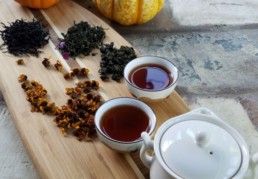
Lupus is a disease that affects an estimated 1.5 million Americans and more than 5 million people worldwide.
It falls into the category of auto-immune disorders, which means that the immune system attacks healthy tissue instead of protecting it from infection. These immune system attacks usually cause inflammation in multiple areas of the body, including the joints, skin, and internal organs.
Sadly, lupus is not an equal opportunity disease. Approximately nine out of every ten patients are women, and people of color are two to three times more likely to develop the condition.
Those affected experience financial stress in addition to physical symptoms, as medical care costs an average of $33,000 per year in the US.
Loss of productivity, such as time away from work, costs between $1,250 and $20,000 depending on each patient’s circumstances.
Lupus remains somewhat of a medical mystery, though western-style therapies are becoming more sophisticated and effective as researchers gather new insight into the condition.
Nonetheless, many patients explore alternative medicine to further reduce or eliminate symptoms that make daily life difficult.
What Does Lupus Feel Like?
If you ask a sample of lupus patients, “What does lupus feel like?” you are likely to get a variety of answers.
This condition doesn’t have a defined set of symptoms – those who suffer with the disease may have occasional flare-ups or constant pain.
That makes lupus one of the most difficult conditions to diagnose. There isn’t a single test that confirms the presence of lupus – instead, it is a pattern of symptoms that occur over a period of time.
Lupus patients might feel constant, unrelenting fatigue. They are simply exhausted, no matter how much they rest.
Others might report continuous discomfort or pain in the skin and/or joints. Swelling in the joints, hands, feet, and around the eyes is also common, and some notice a pattern of headaches that can’t be explained.
Symptoms of Lupus
Aside from the general feeling of fatigue and pain, physicians take note of several other symptoms when trying to determine whether lupus is the underlying condition. These include the following:
- Low-grade fever
- Light sensitivity – including sunlight, fluorescent light, or both
- Pain in the chest during deep breathing
- Hair loss
- Mouth sores
- Sores in the nose
- Butterfly rash across the cheeks and nose
- Numbness in fingers and/or toes
- Blue or white tinge to fingers and/or toes
Experiencing any combination of these symptoms doesn’t mean lupus is the culprit.
Physicians also review lab results, medical history, and whether there is a family history of lupus before making a definitive diagnosis, as there are several other conditions that present the same way.
Adding to the complexity is the fact that symptoms can change over time, or they can come and go depending on lifestyle factors like diet and stress levels.
What is the Most Common Cause of Lupus?
Certain people are more likely to develop lupus, and it appears that this condition is more likely to affect members of the same family. However, scientists have been unable to identify the exact cause of the disease, which makes it harder to treat.
Some theories suggest that lupus might develop in response to hormones – particularly estrogen.
There is also a possibility that environmental factors bring on the disease. It may be a combination of both, or there could be another explanation altogether. Researchers simply don’t have the answers quite yet.
What they do know is that certain triggers are likely to bring symptoms of lupus to the surface. These include:
- Exposure to fluorescent light
- Exposure to ultraviolet light, for example sunlight
- Sulfa drugs
- Diuretics
- Tetracycline drugs
- Certain antibiotics, including penicillin, amoxicillin, ampicillin, and cloxacillin
- Viral infections, such as colds, flu, and RSV
- Chronic sleep deficiency
- Chronic stress
- Physical stress, including pregnancy and childbirth, surgery, and injuries
Triggers can vary from person to person, and like lupus symptoms, they can also change over time. That makes the condition more difficult to manage, as flare-ups are often unpredictable.
What Foods Trigger Lupus Flare-Ups?
Food isn’t closely associated with lupus flare-ups, but there are some that could cause problems. They tend to be foods associated with boosting the immune system, which sounds like a good thing.
However, lupus patients have an overactive immune system, so any boost could cause problems.
Examples of these immune-boosting foods include:
- Alfalfa sprouts
- Eggplant
- Garlic
- Hot Peppers
- Sweet Peppers
- Tomatoes
- White Potatoes
These foods don’t affect every lupus patient, so the key is to monitor any patterns that occur between specific foods and flare-ups.
Note that alcohol and salt can also increase lupus symptoms, so many choose to reduce or eliminate alcohol and salt intake.
How Do You Cure Lupus?
Sadly, there is no cure for lupus, though scientists continue to research the condition.
As a result of their work, western therapies are becoming more effective, and physicians have better tools for diagnosing and managing the disease.
Thanks to these advances, between 85 percent and 90 percent of patients live a normal lifespan, and many are able to enjoy a good quality of life.
However, that doesn’t mean patients should ignore alternative medicine – many have seen tremendous improvement by incorporating complementary therapies into their treatment regimens.
Can Chinese Medicine Cure Lupus?
Traditional Chinese Medicine tends to be the first choice among patients in search of complementary therapies to treat lupus. TCM is focused on whole-body health, based on the premise that a disruption in one part of the body can lead to symptoms in other parts of the body.
Specifically, the goal of TCM practitioners is to ensure the smooth flow of Qi – the vital energy or life force that flows through all things. Qi can become stagnant, depleted, or blocked, causing disease symptoms such as those associated with lupus.
There are a variety of treatment options associated with TCM, including specialized massage, acupressure, and acupuncture.
Medicinal herbs also play an important role in managing Qi, and it is common for practitioners to recommend customized blends that address the individual patient’s needs.
With that said, there are several options that come highly recommended as the best Chinese herbs for lupus.
Though TCM is not a cure for the disease, many patients have experienced significant improvement in their quality of life as a result of alternative therapies.
What are the Best Chinese Herbs for Lupus?
Traditional Chinese Medicine relies on dozens of herbs that have proven effective in treating disease.
When it comes to lupus, the goal of your TCM practitioner is to reduce the heat being generated in your body.
Excess heat causes deficient Qi, which results in the symptoms associated with lupus.
Your practitioner is likely to recommend one or more of the following herbs that specifically serve to nourish Qi, remove toxins, and reduce inflammation:
- Ren Shen (Radix Ginseng)
- Huang Qi (Radix Astragali)
- Gou Qi (Wolfberry Fruit)
- He Shou Wu (Radix Polygoni Multiflori)
- Ling Zhi (Ganoderma Lucidum)
- Gan Cao (Glycyrrhiza Uralensis)
The combination and dosage should be customized to fit your needs, so it is unwise to begin therapy with these herbs until you have been evaluated by an experienced TCM practitioner.
Though they are herbs found in nature, they have potent effects, and they should be handled as you would any other type of medicine.
Chinese Herbal Formula for Lupus
Studies have shown that a certain Chinese herbal formula for lupus was effective in decreasing flare-ups and reducing dependency on pharmaceuticals.
This is good news for patients who don’t have access to regular visits with a TCM practitioner, as it is possible to purchase the product from reputable providers online.
The formula is known as Zi Shen Qing (ZSQ), and it works by reducing heat in the body to restore the balance of Qi. Further, it clears toxins that contribute to lupus flare-ups. Zi Shen Qing contains a pre-measured combination of the following Chinese herbs:
- Huang Qi (Radix Astragali)
- Sheng Di (Rehmannia glutinosa Libosch)
- Shan Zhu Yu (Fructus Cornus)
- Bai Shao (Paeonia lactiflora)
- Dan Pi (Cortex Moutan Radicis)
- Bai Hua She She Cao (Herba Hedyotis Diffusae)
This formula has been used in Traditional Chinese Medicine for centuries, but it is still wise to work with your physician and practitioner before beginning this treatment.
Once you have the go-ahead, be sure to purchase from a provider that has a reputation for quality.
This formula is recognized by the Chinese National Health Commission (NHC), but it is not regulated by the U.S. Food and Drug Administration.
Homeopathic Treatment for Lupus
Traditional Chinese Medicine tends to be the most popular method of alternative medicine for patients living with lupus, but it isn’t the only option.
Some prefer to explore homeopathic treatment for lupus. Examples of the recommended homeopathic treatment for lupus that you may receive from your practitioner include the following:
- Apple Cider Vinegar
- Coconut Oil
- Flaxseed
- Ginger
- Green Tea
- Holy Basil (also known as Tulsi)
- Turmeric
An Epsom salt bath may also be helpful in reducing the pain and inflammation associated with a lupus flare-up.
Again, it’s best to work with an experienced practitioner of homeopathy before beginning any sort of alternative therapy.
Natural Supplements for Lupus
Pharmaceutical drugs are often prescribed to manage the symptoms of lupus, but research has shown that natural supplements for lupus can measurably improve quality of life.
Alternative and complementary medicine doesn’t mean you give up on western medical care.
Many physicians welcome the opportunity to incorporate proven alternative therapies into your comprehensive treatment plan.
What’s Next?
About the author

